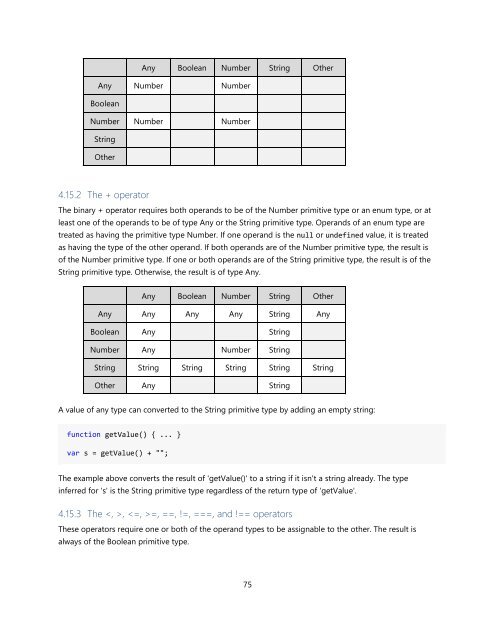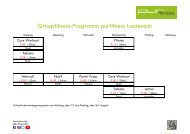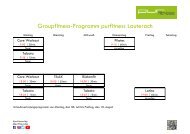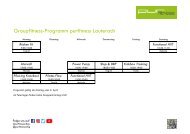TypeScript Language Specification v1.5
TypeScript Language Specification v1.5
TypeScript Language Specification v1.5
You also want an ePaper? Increase the reach of your titles
YUMPU automatically turns print PDFs into web optimized ePapers that Google loves.
Any Boolean Number String Other<br />
Any Number Number<br />
Boolean<br />
Number Number Number<br />
String<br />
Other<br />
4.15.2 The + operator<br />
The binary + operator requires both operands to be of the Number primitive type or an enum type, or at<br />
least one of the operands to be of type Any or the String primitive type. Operands of an enum type are<br />
treated as having the primitive type Number. If one operand is the null or undefined value, it is treated<br />
as having the type of the other operand. If both operands are of the Number primitive type, the result is<br />
of the Number primitive type. If one or both operands are of the String primitive type, the result is of the<br />
String primitive type. Otherwise, the result is of type Any.<br />
Any Boolean Number String Other<br />
Any Any Any Any String Any<br />
Boolean Any String<br />
Number Any Number String<br />
String String String String String String<br />
Other Any String<br />
A value of any type can converted to the String primitive type by adding an empty string:<br />
function getValue() { ... }<br />
var s = getValue() + "";<br />
The example above converts the result of 'getValue()' to a string if it isn't a string already. The type<br />
inferred for 's' is the String primitive type regardless of the return type of 'getValue'.<br />
4.15.3 The , =, ==, !=, ===, and !== operators<br />
These operators require one or both of the operand types to be assignable to the other. The result is<br />
always of the Boolean primitive type.<br />
75


















